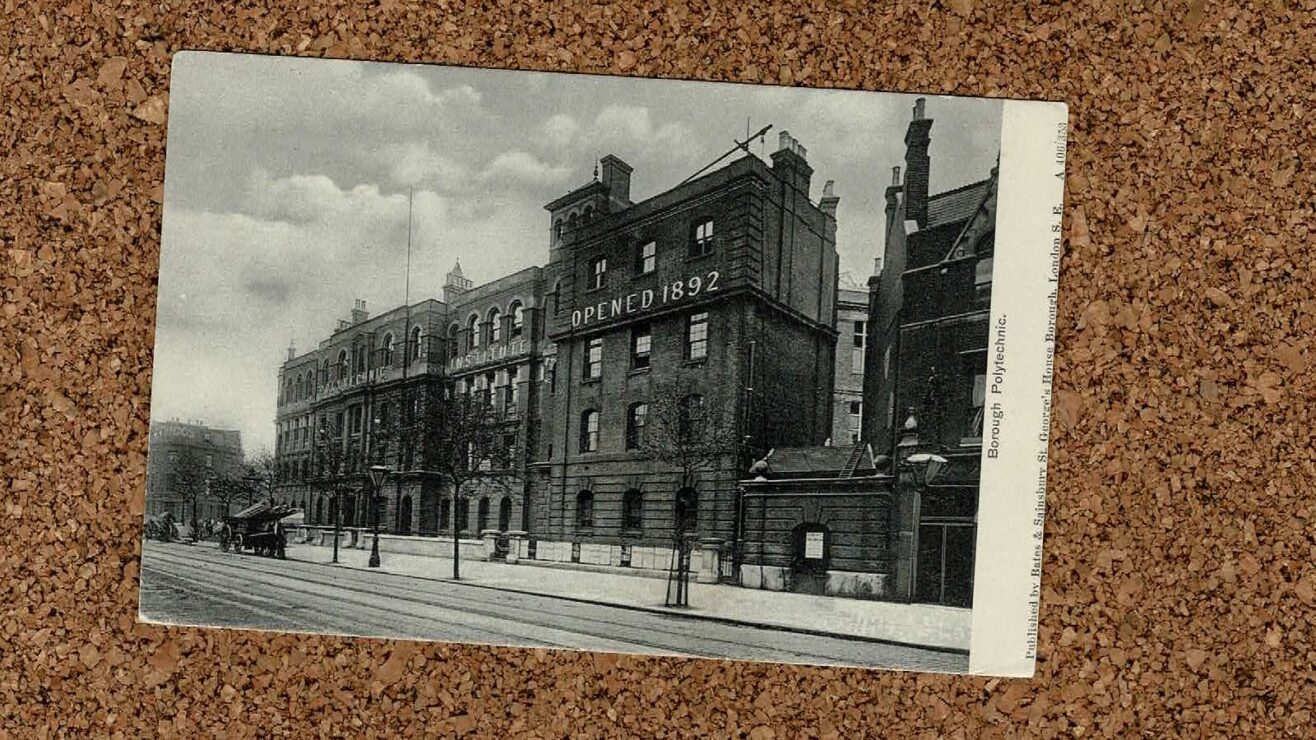Diversifying accommodation options would help universities to support students from Gypsy, Roma, and Traveller backgrounds.
The types of accommodation universities generally offer are exclusionary. They help to set a narrative about who university students are and make presumptions about their needs. Students with dependents, and/or those who prefer not to live in bricks and mortar blocks with shared facilities are denied the right to university housing.
My great-grandmother on my mum’s side, Nan, told me what the ‘stopping places’ were. She explained they were the diverse places where she and her family used to live, in the days of the wagons and ‘bender’ tents. On occasions they would be there for years, other times just a few days. Often they had permission, granted by a farmer they worked for or some kindly landowner. Sometimes they had no permission and had to lie low. (Damian Le Bas, 2018)
Universities could do more by making use of land that they own and working with local councils to provide university accommodation in the form of Campus Stopping Places.
How would this work?
In the same way as existing university accommodation. A small site with designated pitches which students rent on a yearly/termly basis. Access is restricted to university students (with residing family members also being registered), with the site maintained and protected by campus estates teams. Good practice guides for designing Gypsy and Traveller sites highlight the importance of community involvement at the planning stage; working with Students Unions and encouraging participatory discussion with students and staff from Travelling backgrounds is key. Wheels have already been set in motion to help facilitate these conversations. Following a roundtable event at the House of Lords in 2019 where the experiences of higher education for people from Gypsy, Traveller, Roma, Showmen and Boater (GTRSB) communities were documented, a “Good Practice Pledge” was established, and signatories of this Pledge have access to a wealth of information.
The Office for Students recognises that people from Gypsy, Roma, and Traveller communities (including Showmen, Boater, and New Travellers) often face the biggest challenges when it comes to accessing, succeeding within, and progressing from further and higher education. Yet, research has shown that only 35% of Access and Participation Plans make reference to GTRSB communities, and only 16 per cent target these communities directly. The inclusion of GTRSB communities within Access and Participation Plans is not yet compulsory, signalling the need for a “realisation of GTRSB educational rights”. Diversifying the kinds of accommodation that universities offer is a step in the direction of realising these rights.
A wider issue
The curtailments of peoples right to roam and reside on public land hasn’t been matched with an adequate provision of official sites. Bureaucracy around planning permission means that even people owning land are often denied the right to live on it. Problems have been heightened further by the recently passed Police, Crime, Sentencing, and Courts Bill, which is a direct assault on the traditional way of life of Gypsy and Traveller communities. And Boater communities are similarly impacted as bureaucratic processes seek to undermine established communities.
For those from GTRSB communities, access to culturally appropriate housing is an ongoing struggle; for students from these communities, higher education providers that require assimilation upon entry symbolise the exclusion of wider society.
A recent report from HEPI asks whether universities could do more to address homelessness in light of the cost of living crisis. Yet, “hidden homelessness” is nothing new for people from GTRSB communities, and as targets of widening participation, the responsibility rests on universities to act:
Widening participation is fantastic but it’s bringing the sorts of groups that are most affected by homelessness into universities. It will inevitably lead to more students who are homeless. Widening participation is not just about recruiting people, it’s about supporting them through their studies.
The banner of GTRSB includes a broad range of people. Some have shared customs and histories, and all have unique experiences. Many people from Travelling communities do not live nomadic lifestyles and many people living nomadic lifestyles are not traditionally part of Travelling communities. Many people from GTRSB communities avoid self-identification in fear of negative media representation. Site-living is not for everyone – some people might prefer bricks and mortar, while others like to keep moving or to live-aboard. But some would benefit from an affordable pitch on campus, while others would appreciate the option.
Stopping Places have existed in Britain for hundreds of years. The reasons why many people don’t know this are complex, but one thing is clear – their environmental impact is minimal. There is an alternative to the grand architectural statements that have traditionally housed students on university campuses. The case for Campus Stopping Places does not claim quick-fix solutions to suit everyone’s needs – but it is a step in the right direction in the realisation of GTRSB educational rights.














Fascinating article on a less-than-visible issue. Are statistics available on the number of Travelling students that would want to make use of Campus Stopping Places? and on those who have compromised with bricks and mortar in order to study, and even those (harder to source) who have avoided HE because of the difficulties of accommodation?
Thanks for the comment, Robert – some important questions. I am not aware of any statistics. Exploring this further through research, potentially with a pilot project, would be interesting.
Fascinating, and hugely complex, Universities simply wanting ‘bums on seats’ and boxes ticked thinking this will be easy need not apply.
Locally we have 3 ‘official’ traveller sites, and several dozen unofficial ones, each is ruled by a single family, even the official council sites, I can’t see any University provided site not ending up the same way. The ‘bricks and mortar’ Roma Gypsies I know would rather any youngster good enough to attend Uni wasn’t highlighted as ‘different’ as the hatred for them runs deep in other more recent migrant groups.
Thanks for the comment, John – having the option to choose an alternative form of accommodation should be open to all students. The idea is that pitches are available for university students only (and registered family members), and that the accommodation is managed by estates teams in much the same way as existing student housing.
This article does not appear to address or understand the culture and the people within those communities. There are many barriers that need to be overcome that would put students is those communities in a place that would ready them for further or higher education. That is if they want to advance to FE/HE, which this article assumes that they do. A lack of on site facilities may be a barrier, but to think those facilities would scratch the surface in addressing access and participation within those communities, ignores the real and deep seated issues that exist.
Thanks for the comment, Russell – some important points. The idea is conceptualised in response to sector-wide ambitions to widen participation for students coming from ‘disadvantaged’ backgrounds, for which the OfS includes people from Gypsy, Roma, and Traveller backgrounds (which also includes Showmen, Boater, and New Travellers). The GTRSB banner is broad and incorporates many different people and cultures, although, as you rightly mention, there are shared barriers and deep seated issues. The article has tried to highlight some of these, such as laws which criminalise nomadic lifestyles, bureaucratic processes that undermine peoples attempts to live peacefully, and media representations… Read more »